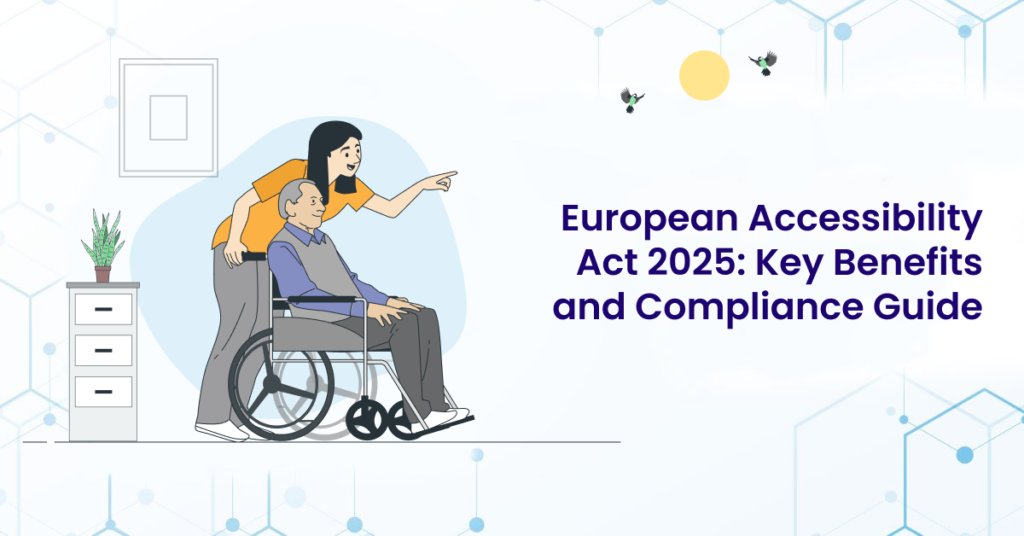What is the European Accessibility Act?
The European Accessibility Act is a comprehensive EU law designed to ensure that key products and services are accessible to people with disabilities. This act is part of the EU’s commitment to the United Nations Convention on the Rights of Persons with Disabilities, emphasizing the need for equal participation in society.
The EAA aims to improve the lives of 100 million people in the EU who have disabilities, as well as many older individuals and those with temporary impairments, by setting up a standard for accessibility. The act covers a wide range of products and services, including public transport, banking services, computers, TVs, e-books, online shops, and more.
Who Benefits from the European Accessibility Act?
Persons with Disabilities
Accessibility is a fundamental requirement for people with disabilities to participate fully in society. The EAA ensures they have easier access to essential services and products, significantly enhancing their quality of life. For example, accessible ATMs with visual and audible signals, user-friendly websites, and accessible digital assets of both private and government entities will become standard.
Older People and Temporarily Impaired Individuals
The EAA also benefits older adults and those with temporary impairments. As the population ages, the demand for accessible products and services increases. The European Accessibility Act addresses this need, ensuring that older people can remain independent and participate actively in society.
People with Disabilities
Around 100 million people in the EU have some form of disability. Many persons with disabilities in Europe do not have the same chances in life as other people. This stops them from actively participating in the economy as well as availing fundamental services like ordering medicines online, shopping for essential goods, etc. The EAA will help improve accessibility of the Internet and allow for more participation from people with disabilities.
Businesses
Both large companies and small and medium-sized enterprises (SMEs) will benefit from the EAA’s common accessibility requirements. By standardizing these requirements across the EU, businesses can trade more easily between member states and innovate to create more inclusive products and services. This helps businesses not only open doors to new markets but also fosters competition, leading to better products and services at competitive prices.
What Do Businesses Need to Do to Comply?
Businesses selling products and services covered by the EAA must review and adhere to their national laws and regulations transposing the directive. They have until June 2025 to ensure compliance with the EU accessibility requirements. Here are the key steps businesses should take:
- Understand the Scope: Identify which products and services fall under the EAA.
- Assess Current Offerings: Conduct an audit of existing products and services to determine what changes are needed to meet accessibility requirements.
- Implement Changes: Develop and implement a plan to make necessary adjustments. This could involve redesigning products, updating software, or enhancing customer service protocols.
- Train Staff: Ensure that employees understand the new requirements and how to support customers with disabilities effectively.
- Monitor and Report: Establish a system for ongoing compliance checks and reporting.
Products and Services Covered Under European Accessibility Act
The EAA focuses primarily on digital technologies due to their growing importance in communication and economic participation. The covered products and services include:
Products
- Computers and operating systems
- Smartphones and other communication devices
- TV equipment related to digital television services
- ATMs and payment terminals
- E-readers
- Ticketing and check-in machines
Services
- Phone services
- Banking services
- E-commerce
- Websites and mobile services
- Electronic tickets and information for air, bus, rail, and waterborne transport services
- E-books
- Access to audio-visual media services (AVMS)
Exceptions and Current Rules
The EAA complements existing EU legislation on accessibility, particularly in public procurement and EU structural funds. By June 2025, all new products and services must comply with the act’s requirements. However, member states can make certain exceptions, such as extending the timeline for service providers using self-service terminals. Microenterprises (with fewer than 10 employees) providing services are exempt but are encouraged to adopt accessibility measures.
Common Requirements of European Accessibility Act
The EAA outlines functional accessibility requirements without imposing rigid technical specifications. This approach allows for innovation and flexibility. Key requirements include:
- Alternative communication methods (e.g., text-to-speech, magnification)
- Adjustable interfaces (e.g., volume control)
- Accessible websites with clear information about accessibility features
- User-friendly navigation and structure for online content
Enforcement and User Rights
To ensure compliance, the EAA mandates regular checks and robust enforcement mechanisms. EU member states must review complaints, ensure corrective actions, and inform the public about relevant authorities. From June 2025, customers can file complaints with national courts or authorities if products and services do not meet accessibility standards.
Final Thoughts
The European Accessibility Act is a transformative legislation that promises to enhance inclusivity and accessibility across the EU. By standardizing accessibility requirements, the EAA not only improves the lives of millions of people with disabilities but also drives innovation and competition in the market. As businesses prepare for the June 2025 deadline, it’s essential to embrace these changes and contribute to a more inclusive society while improving their business prospects.
At Pivotal Accessibility, we are committed to helping businesses navigate the complexities of the European Accessibility Act. Our expert team can assist you in auditing, planning, and implementing the necessary changes to ensure compliance. Contact us today to learn more about how we can support your journey towards accessibility and inclusivity.

